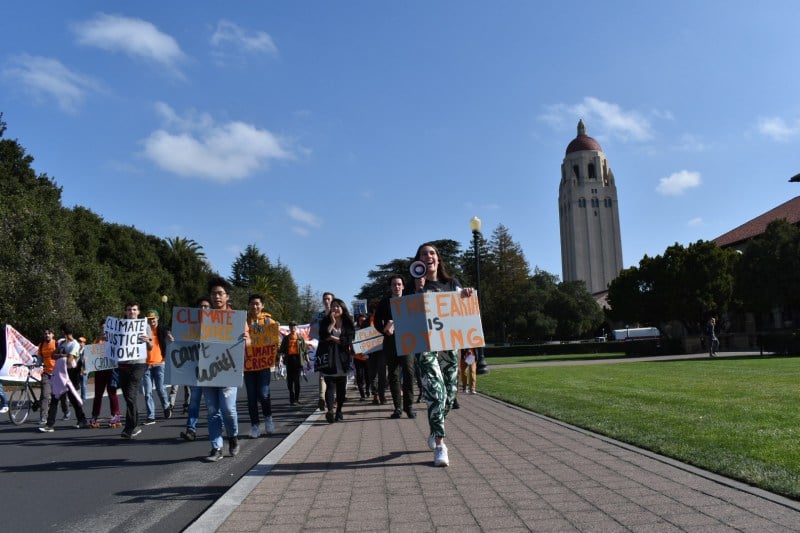The Board of Trustees has decided not to divest from publicly-traded oil and natural gas companies, despite calls to do so from students, some faculty members and the group Fossil Free Stanford, Board Chair Jeff Raikes ’80 told The Daily. The Board also approved a $7 billion annual budget for the next fiscal year.
The Board of Trustees concluded that investment in these companies does not meet the “abhorrent and ethically unjustifiable” standard adopted in 2018 by the Stanford Management Company, the firm that manages the endowment, according to Raikes.
Fossil Free Stanford expressed disapproval of the decision.
“The statement of the Board does not reflect the urgency communicated by the climate science pertaining to this issue, ignoring the climate standards of the Intergovernmental Panel on Climate Change (IPCC) and community-based research,” the group said in a statement. “Instead, the Board expressed blind faith in SMC’s Ethical Investment Framework, a document that fails to outline measures of transparency and accountability.”
In making its decision, the Board did not take into account research funding from fossil fuel companies, Raikes told The Daily. Such considerations played a large part in the Faculty Senate’s discussion before the body ultimately voted against divestment, and have been the subject of criticism from students and some faculty who support divestment.
Investments in fossil fuels make up less than 1.5% of the merged pool, which according to Stanford Management Company includes “substantially all of Stanford’s investable endowment assets,” according to Raikes. The 1.5% represents over a 90% decrease from 2011, when investments in fossil fuels made up 16% of the merged pool.
While Stanford currently has no direct holdings in the 100 companies identified by Fossil Free Stanford, the University indirectly invests in the fossil fuel industry through financial instruments such as index funds, which are portfolios of investments designed to track market indexes such as the S&P 500.
According to Gene Sykes M.B.A. ’84, chair of the Board’s Special Committee on Investment Responsibility, “Stanford is generally one of many investors and so they can’t dictate the composition of the portfolio.”
Sykes’s committee convened a task force in June of last year to study the issue of divestment from fossil fuels. Since then, the board has held 42 meetings on the issue, including four meetings with Fossil Free Stanford, according to documents provided to The Daily by the Board.
Ultimately, the Board found that “participation in today’s energy systems — either as suppliers or consumers — does not in and of itself currently meet the standard required for blanket divestment under Stanford’s Statement on Investment Responsibility,” according to a statement from the Board which cited the need to use less carbon-intensive fossil fuels while transitioning to clean energy.
“We also consider the assertion that oil and gas companies have engaged in human rights violations that would warrant divestment from the industry as a whole,” Raikes said. “The board concluded that allegations of that type should be evaluated on a specific case-by-case basis, and the generalized claims were insufficient to support a determination, a blanket industry-wide capability.”
The Board also committed “to accelerating the university’s transition, including its operations and endowment, to at least net-zero greenhouse gas emissions by 2050,” according to its statement.
According to Raikes, the Board of Trustees also approved a $7 billion operating budget for the next fiscal year, which is $620 million lower than it would have been due to the COVID-19 pandemic. Of this $7 billion, $1.42 billion will come from a payout from the endowment.
The University expects to pay out 3% more from the endowment to support student financial aid, which will help the University in its commitment to cover tuition costs for families with incomes below $150,000. For University operations that do not include financial aid, Stanford expects to decrease the endowment payout by about 10%.
This article has been updated to include that the Board of Trustees committed to accelerating Stanford’s transition to at least net-zero greenhouse gas emissions by 2050.
Contact Michael Espinosa at mesp2021 ‘at’ stanford.edu.
